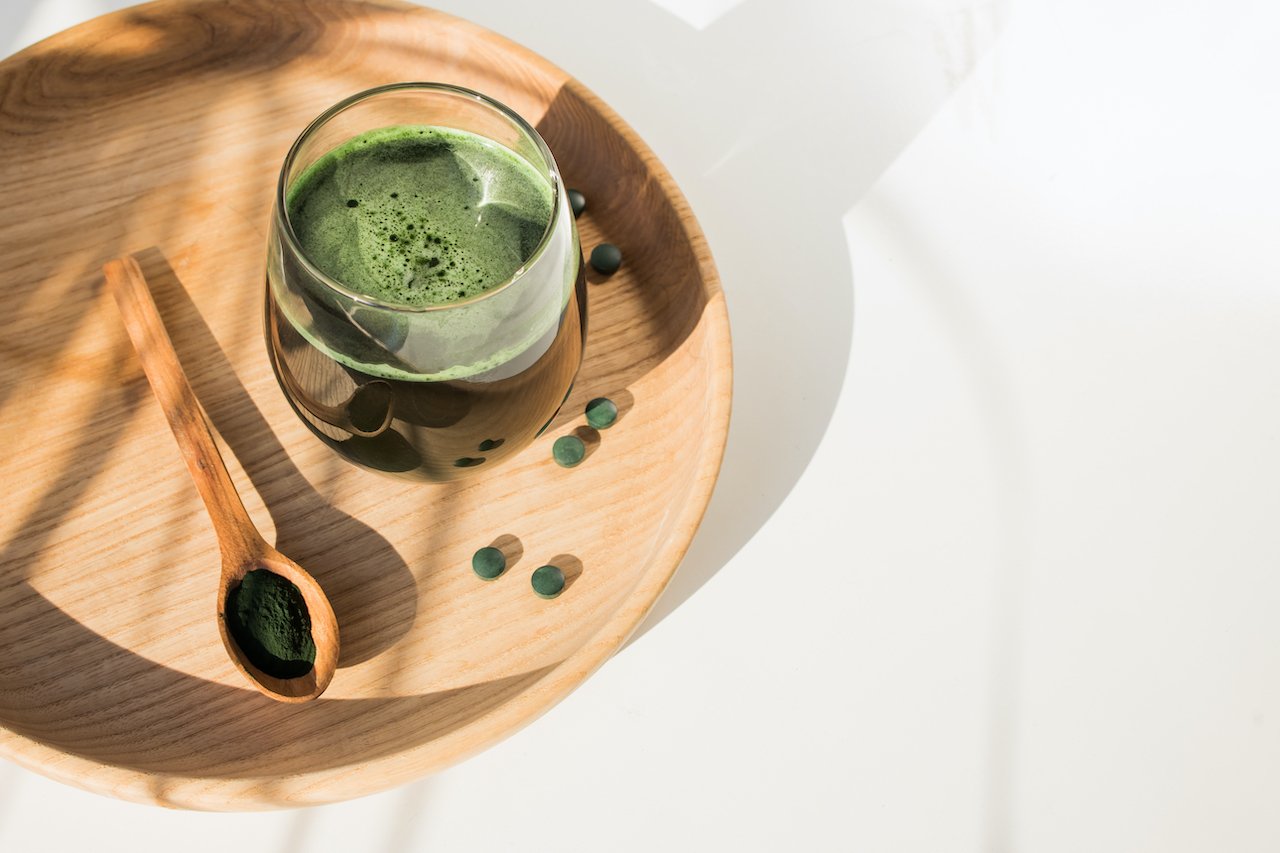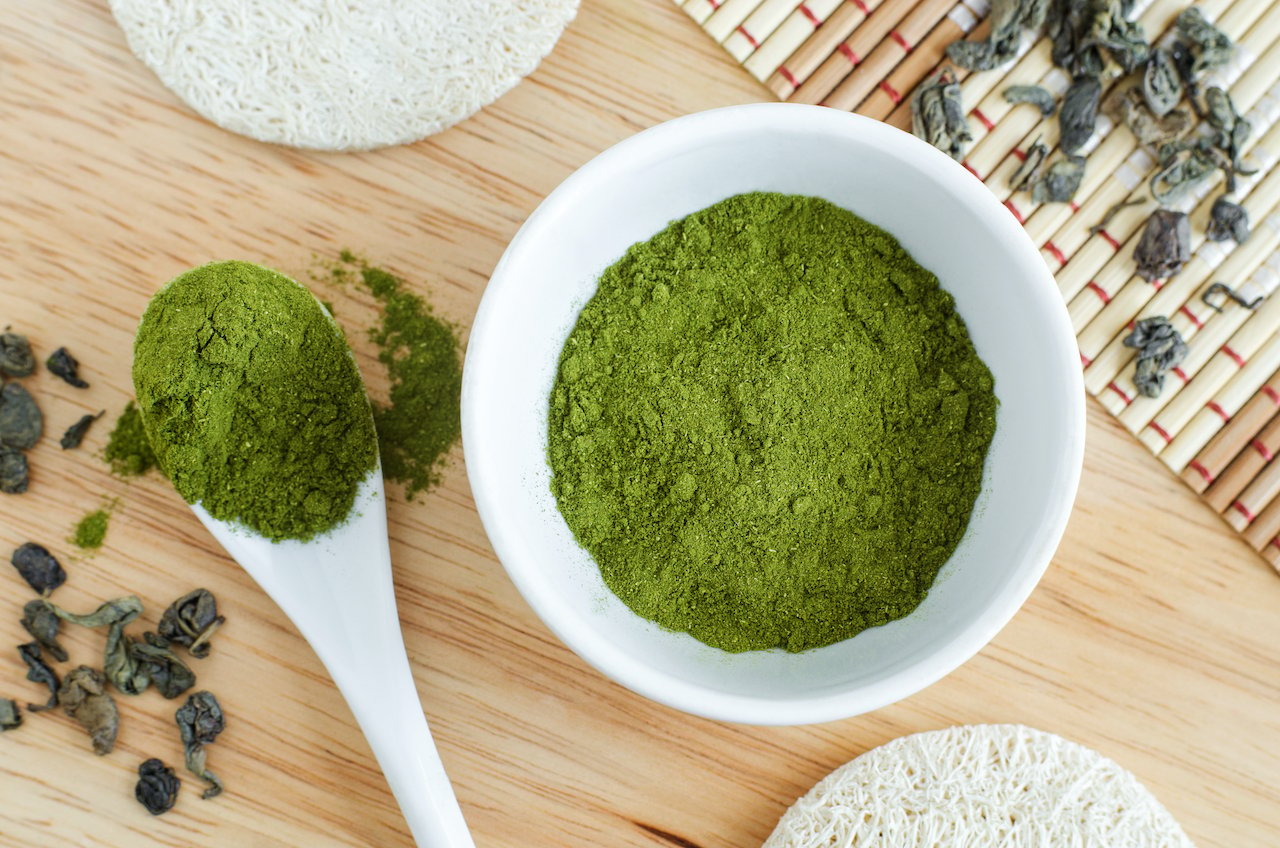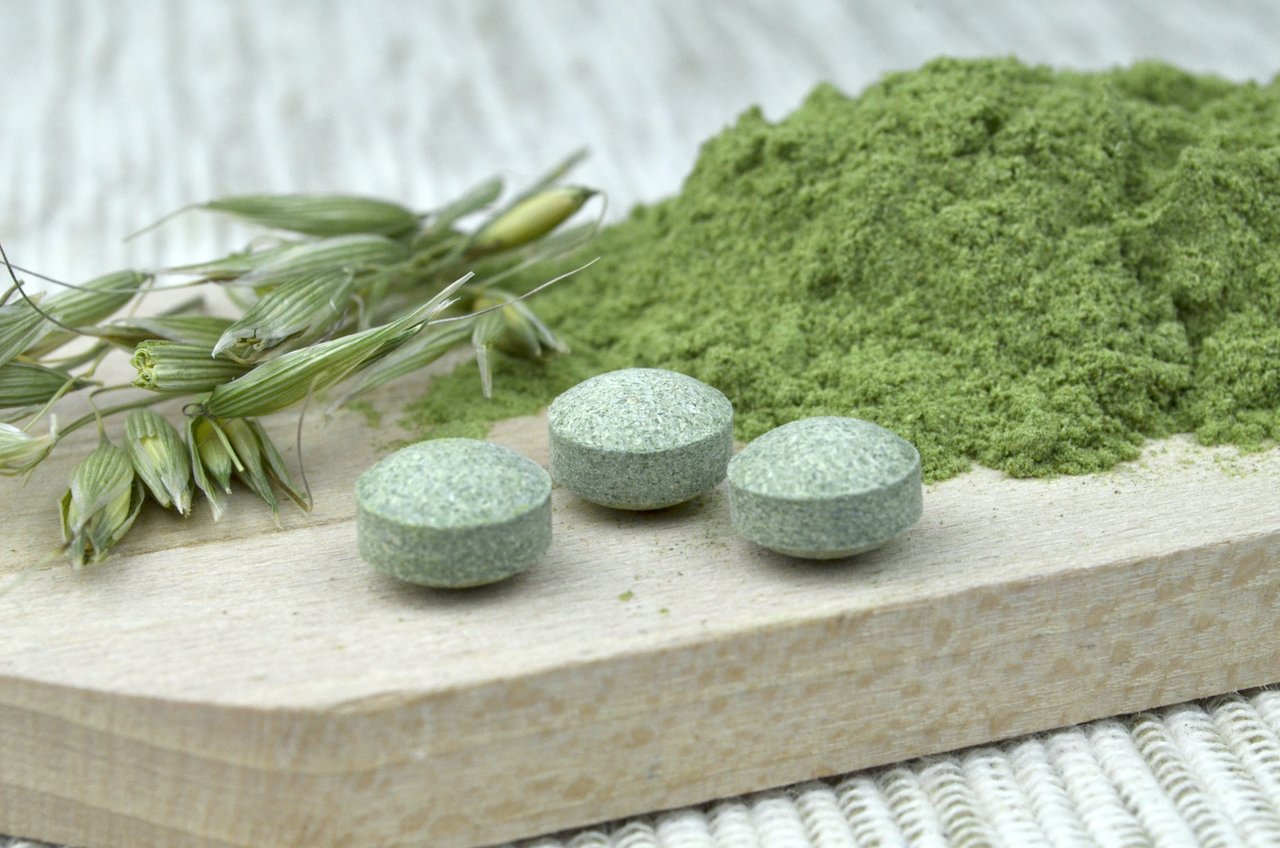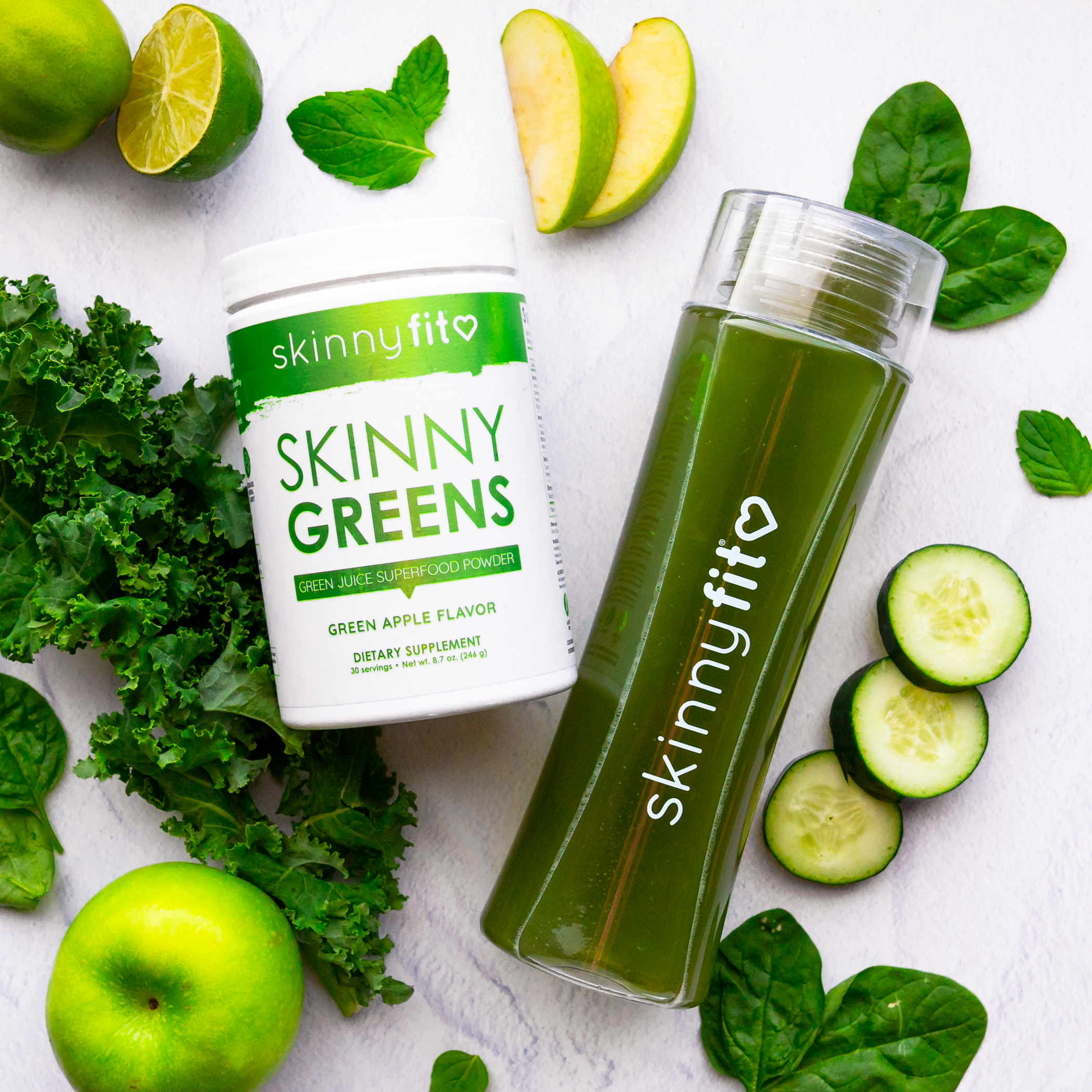If you’ve seen your local juice shop advertising algae drinks, you’ve probably stumbled across spirulina and chlorella. They’re both nutrient-dense algaes that have grown in popularity over the last decade (and have been making their way into beverages everywhere!) While they’re both uniquely good for you, people tend to want to know: Who wins in the battle of chlorella vs spirulina?
I’ll cut to the chase right now. As with most healthy foods and supplements, they’re both superfoods in their own right. Chlorella benefits and spirulina benefits are both equally great, they just vary in types of health benefits. So instead of taking on a chlorella vs spirulina mindset, I always suggest that they be taken together. Two benefits are better than one, after all!
If for some reason you only have room for one algae in your life, or are set on picking a favorite, I’ll help you get to the bottom of which one is for you.
What Is Chlorella?
Chlorella is a crazy nutritious freshwater algae. I know, I know, could it sound less appetizing? But here’s the thing, you can easily mask it in smoothies, yogurt, coconut lemon or lime water, and much more. It’s not digestible as is, though, so don’t go and try to wild-catch your own. 😂
One thing that sets chlorella apart in the chlorella vs spirulina debate, is that chlorella must be taken as a supplement in order to get all of the amazing chlorella benefits. It can be found in capsule form, powders, tinctures, and extracts. I personally take mine in a unique powdered blend of other greens, but we’ll get to that in a bit!
As its vibrant green color suggests, chlorella is packed with powerful macro and micronutrients, such as proteins, omega-3 polyunsaturated fatty acids, polysaccharides, as well as vitamins and minerals. These all play an important dietary role in human health. In addition to the chlorella benefits listed below, chlorella is great for fighting oxidative stress, and even cancer. [4]
Chlorella Benefits
- Lowers the risk of cardiovascular diseases—Studies have shown that chlorella benefits include lowering total cholesterol, including serum lipid levels. High serum cholesterol has been linked to a variety of cardiovascular diseases. [1] As a result, regular chlorella consumption may help to lower the risk of cardiovascular diseases by lowering total cholesterol.
- Accelerate wound healing—In one study of chlorella benefits, 97 subjects were tested for wound healing. All of the subjects tested had either fibromyalgia, hypertension or ulcerative colitis. In addition to accelerated wound healing, the study found chlorella tablets to also improve quality of life! [2]
- Helps detox the body—Chlorella has been used as a natural detoxifier for decades. It’s been proven and used for heavy metal cleansing, which is crucial for anyone who lives in polluted areas, eats a lot of large fish, and eats a lot of processed foods (which tend to be high in heavy metal contaminants). [3]
What Is Spirulina?
Spirulina is a blue-green algae that gets to boast the superfood stamp of approval for its insanely high nutritional content and other health benefits. In just one tablespoon of spirulina you’ll get a healthy dose of protein, calcium, vitamins A, K and C, B vitamins such as thiamin, riboflavin, niacin, folate, and B6, as well as minerals like iron, magnesium, phosphorus and potassium. [5] This is why it’s such a common protein shake add-on!
Just like chlorella, spirulina can be found in capsule form, powders, tinctures, and extracts. My favorite way to take spirulina is in a unique blend of greens due to its relatively high price-point, but again, I’ll get to that. 😉
Onto spirulina benefits! Like chlorella, spirulina is high in antioxidants, but it also has high anti-inflammatory properties. This means spirulina benefits may include increased joint movement, a healthy digestive system, and healthy weight.
Spirulina Benefits
- Great source of protein—Spirulina has always been high on my list of vegan protein supplements. 70% of spirulina is made up of proteins and was even used as a dietary supplement for NASA astronauts on space missions! [4] When it comes to chlorella vs spirulina, spirulina takes the cake on protein.
- Boosts immunity—Thanks to its high vitamin and mineral count, spirulina is an amazing immune booster. Studies have proven spirulina supplements to exhibit antiviral, anticancer, antimicrobial, antiallergic and anti-inflammatory characteristics. [4] It’s not only a great overall health supplement, but also a great disease-fighting aid.
- Improves gut health—Because of spirulina’s easily-penetrable cell wall and low fiber content, it is known to be digested pretty comfortably. One study showed spirulina was even able to preserve healthy gut bacteria during the aging process, and lower harmful gut bacteria. [6]
Difference Between Chlorella vs Spirulina
Before getting into the differences in chlorella vs spirulina, I first want to remind you that they are both amazing, nutrient-dense superfoods. They vary slightly in a few composition and nutrition features, but it would be really tough to say one is better than the other. It’s like comparing apples to oranges. Both provide amazing benefits in their own unique way.
1. Availability
The biggest difference in the two is that spirulina can be eaten and digested as is, as a whole food, whereas chlorella needs to be broken down or “cracked” in order to be consumed. [7] Sometimes supplements will say their chlorella has “broken cell walls”, which just indicates that it is ready for consumption. This isn’t an important note to look for though, because all chlorella supplements should be ready to consume. To put it simply, spirulina could technically be ingested in the wild (though, not advised) and chlorella would need to be broken down first.
2. Protein & calories
As mentioned before, spirulina wins when it comes to protein content. One of the greatest spirulina benefits, in my opinion, is the protein per calorie count. For every 58 calories, chlorella has 5 grams of protein, whereas for every 30 calories, spirulina has 6 grams of protein! [10] So for nearly the same amount of calories, spirulina would rock 12 grams of protein for every 5 that chlorella contains. That’s a significant difference, especially for vegans who struggle to find high plant-based proteins.
3. Good fats
Spirulina is higher in essential fatty acids, or “good fat”, such as gamma-linoleic acid (GLA). GLA has shown to improve and prevent certain cellular and neurotransmitter functions, such as cancer, diabetes, heart disease, arthritis, Alzheimer’s disease, and more. [8] Very small amounts of GLA is accessible in foods, which is why spirulina tends to be celebrated for its GLA content. [9]
Chlorella vs Spirulina: Which Is Healthier?
To break it all down, spirulina benefits and chlorella benefits are equally great. They each offer amazing nutrient profiles, antioxidant properties, and even though they differ in calorie count, they each pack a plant-based protein punch. I know what you reeeeally want to know is, FINALLY, what my favorite greens powder is.
SkinnyFit Skinny Greens is my favorite unique blend of greens because it contains both spirulina and chlorella, along with 34 other amazing superfoods and adaptogens in ONE scoop. They all work together to provide the most benefits out of any green powder I’ve tried, AND you get the most bang for your buck. Living a healthy lifestyle isn’t always cheap, which is why I love SkinnyFit for making health supplements that are easy on the wallet $ and so unbelievably tasty. That being said, have I mentioned that Skinny Greens comes in a delicious green apple flavor?!
When it comes down to it, I hate to choose between chlorella vs spirulina, because they’re both terrific supplements for so many reasons. That’s why I always suggest Skinny Greens for getting in the most powerful superfoods possible. It’s affordable, delicious, and it works! Give it a try and let me know what you think. 💕



